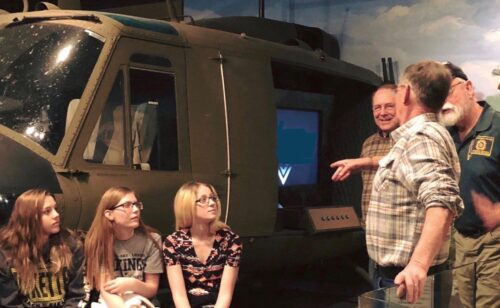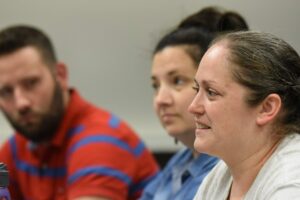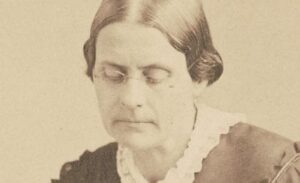
Talking Across the Generations About History
“The vision of the founding fathers—and of all the other extraordinary people who carried our republic forward after it was founded—will come to nothing if our students do not see the value of participating in self-government,” says Kelly Steffen. A graduate of Ashbrook’s Master of Arts in American History and Government (MAHG) degree, Steffen teaches to pass on the legacy of the founding and of those who have worked to complete it. Her lesson plans often create opportunities for students at Vinton-Shellsburg High School in Vinton, Iowa to learn from older community members. This helps them appreciate the problems faced, sacrifices made, and progress achieved by earlier generations.
In 2019, the Gilder Lehrman Institute of American History named Steffen Iowa History Teacher of the Year. She was nominated for this award by a colleague in English language arts with whom she co-teaches a sophomore humanities class in 20th Century America. Being nominated meant filling out an award application that documented her teaching philosophy and practices. As part of the application, Steffen described a study unit she assigns in the humanities class (and simultaneously in a class on American history from 1945 to the present).
Creating Museum Exhibits Around Primary Documents
Each year Steffen’s students create a “Cold War Museum.” Working singly or in pairs, students become specialists on a historical figure or theme from the period. Then they structure an exhibit around at least one primary document that gives important insights into their topic. “I saw the value of primary sources during my time in the MAHG program,” Steffen says. The words of those who witnessed history as it unfolded capture the imaginations of both students and museum-goers.
Students create visual displays that place the documents into historical context. They add simple, concise text explaining the causes and effects of events mentioned in the documents and defining any unusual vocabulary in them, such as technical terms, acronyms, or slang of the era.
Read more of Steffen’s story.



